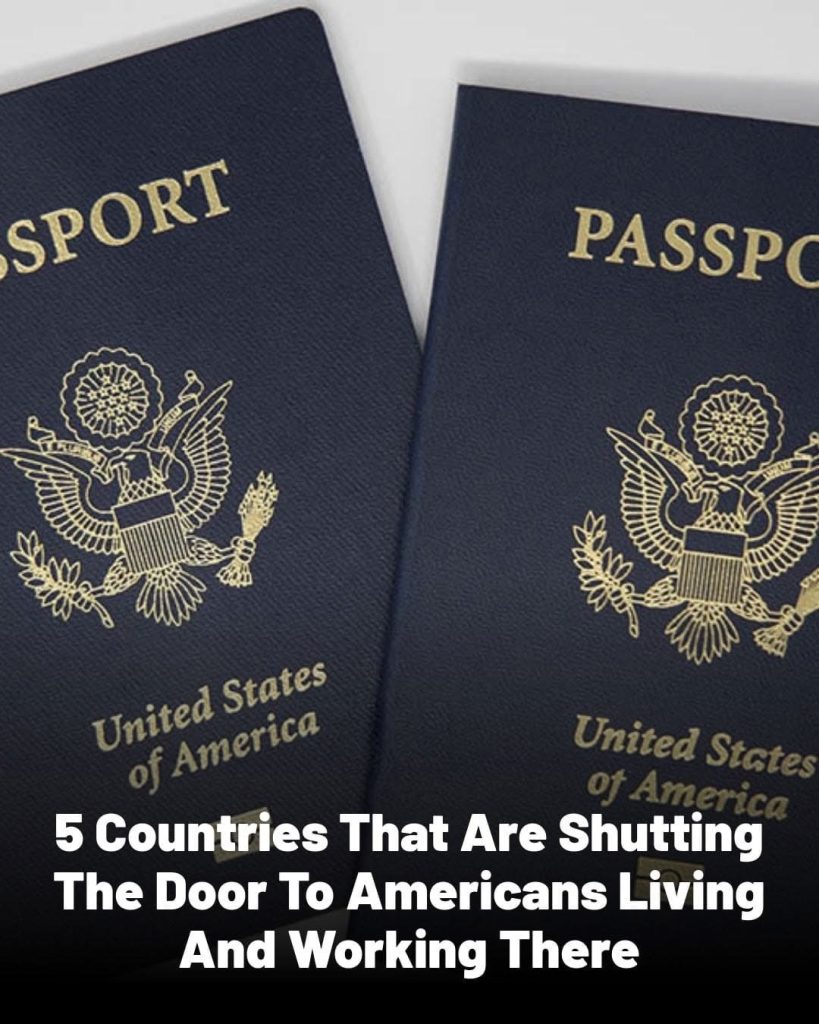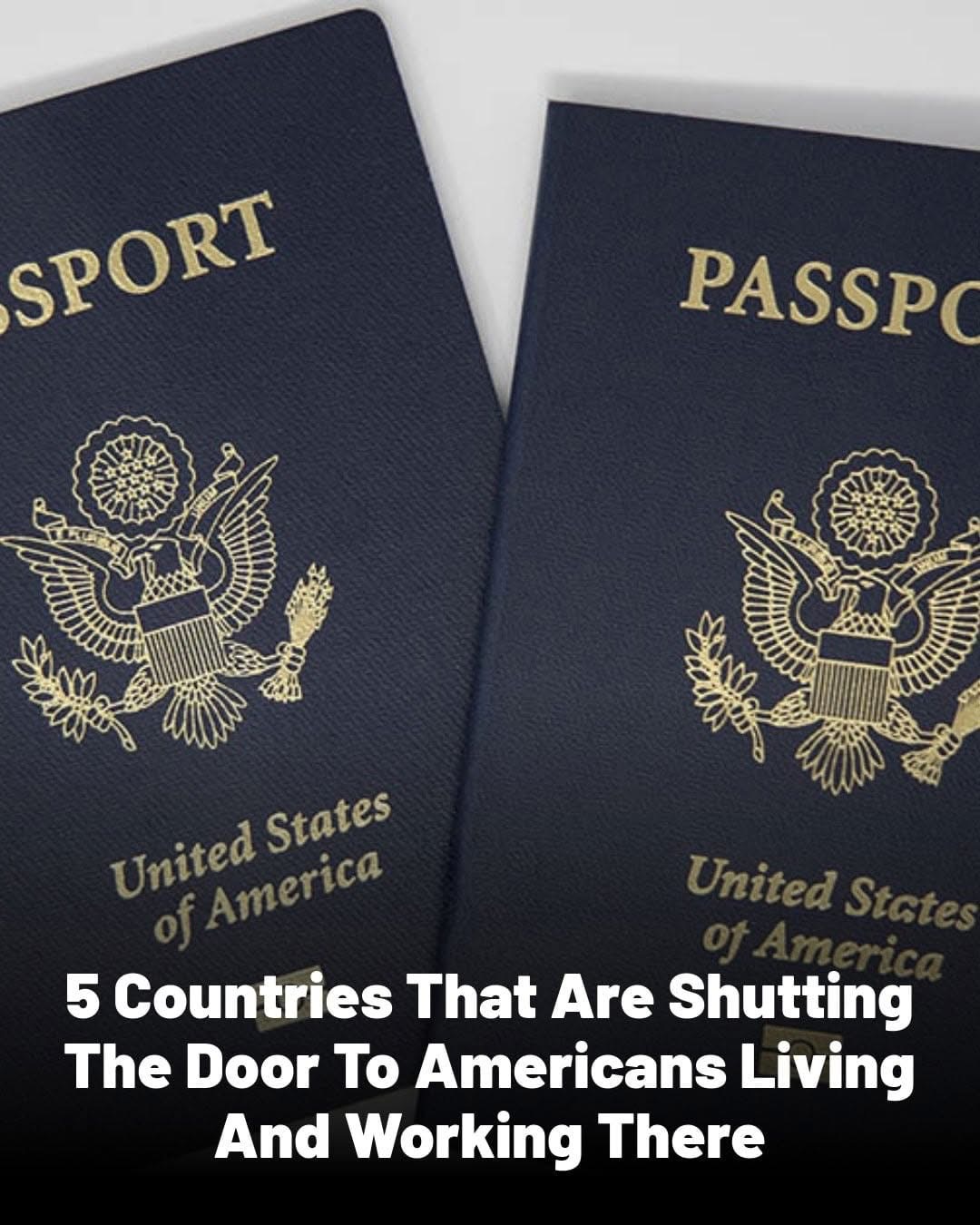
In recent years, several countries have placed significant restrictions on American citizens wishing to live and work within their borders. These restrictions often come in response to economic pressures, political tensions, or concerns about immigration policies. As more Americans seek international opportunities, it’s important to understand which countries have become less welcoming to U.S. nationals and why.
Here are five countries that have taken steps to limit the opportunities for Americans to live and work there.
1. China
China has long been a destination for Americans seeking work in industries like technology, education, and business. However, in recent years, the government has imposed stricter visa policies and made it increasingly difficult for American professionals to stay in the country. Tensions between the U.S. and China, particularly concerning issues like trade wars, intellectual property disputes, and national security concerns, have led to a more hostile environment for Americans looking to live and work there.
In 2020, China introduced stricter visa and work permit policies that impacted American nationals. The country is also focusing on promoting its own domestic talent in key industries, limiting the need for foreign professionals, including Americans.
2. Russia
While Russia has been a historical destination for expatriates, recent political shifts have made it more difficult for Americans to work and live in the country. Since the annexation of Crimea and the ongoing conflict in Ukraine, Russia has taken steps to restrict the movement of U.S. citizens within its borders. Diplomatic tensions and the expulsion of diplomats have led to the closing of American consulates in several Russian cities, making it harder for Americans to apply for the necessary visas.
The Russian government has also cracked down on NGOs and businesses operated by foreign nationals, which has made employment opportunities for Americans in the country more limited. As relations between the U.S. and Russia continue to decline, the barriers to entry for Americans seeking employment in Russia are only likely to grow.
3. Saudi Arabia
Saudi Arabia has long been an attractive destination for Americans, particularly those in the oil, engineering, and healthcare sectors. However, in recent years, the country has tightened visa and work policies, making it harder for foreign nationals, including Americans, to find work in the kingdom. This is partly due to the government’s efforts to increase employment among its own citizens as part of its Vision 2030 plan, which aims to reduce the country’s reliance on foreign labor.
Furthermore, tensions between the U.S. and Saudi Arabia over human rights issues, particularly regarding the murder of journalist Jamal Khashoggi and the ongoing conflict in Yemen, have strained diplomatic relations. As a result, many American professionals are reconsidering their plans to work in Saudi Arabia.
4. Turkey
Turkey has long been a popular destination for American expatriates, with its rich culture, vibrant cities, and growing economy. However, in recent years, the Turkish government has made it more difficult for U.S. citizens to live and work in the country. This is largely due to political instability, as President Recep Tayyip Erdoğan’s government has increasingly restricted freedoms and cracked down on opposition groups.
In addition, tensions between the U.S. and Turkey have escalated in recent years over issues such as the U.S.’s support for Kurdish forces in Syria, which Turkey considers a terrorist organization. These political rifts have led to a more complicated visa process for Americans and fewer opportunities for U.S. professionals to live and work in the country.
5. Venezuela
Venezuela has seen a significant economic and political collapse in recent years, and the situation has become increasingly difficult for foreigners. While many countries have imposed sanctions on Venezuela, the country itself has adopted policies that make it difficult for Americans to enter and work there.
The country’s ongoing political crisis, hyperinflation, and shortages of basic goods have made it a less attractive destination for expatriates. For Americans, the political situation, including the lack of diplomatic relations between the U.S. and Venezuela, has made obtaining visas and securing work permits increasingly difficult. As a result, many U.S. citizens have been forced to reconsider any plans to relocate to Venezuela.
Conclusion
The geopolitical landscape is always evolving, and with it, the opportunities for Americans to live and work abroad. While some countries continue to welcome U.S. nationals with open arms, others are becoming more restrictive. If you’re considering working internationally, it’s essential to stay informed about the latest visa policies and political developments in your country of interest.
As global politics continue to shift, it’s clear that some countries will be less accessible for Americans in the coming years, whether due to economic factors, diplomatic tensions, or efforts to prioritize local labor forces. For anyone seeking an international career, understanding these trends is crucial to making informed decisions about where to live and work.
